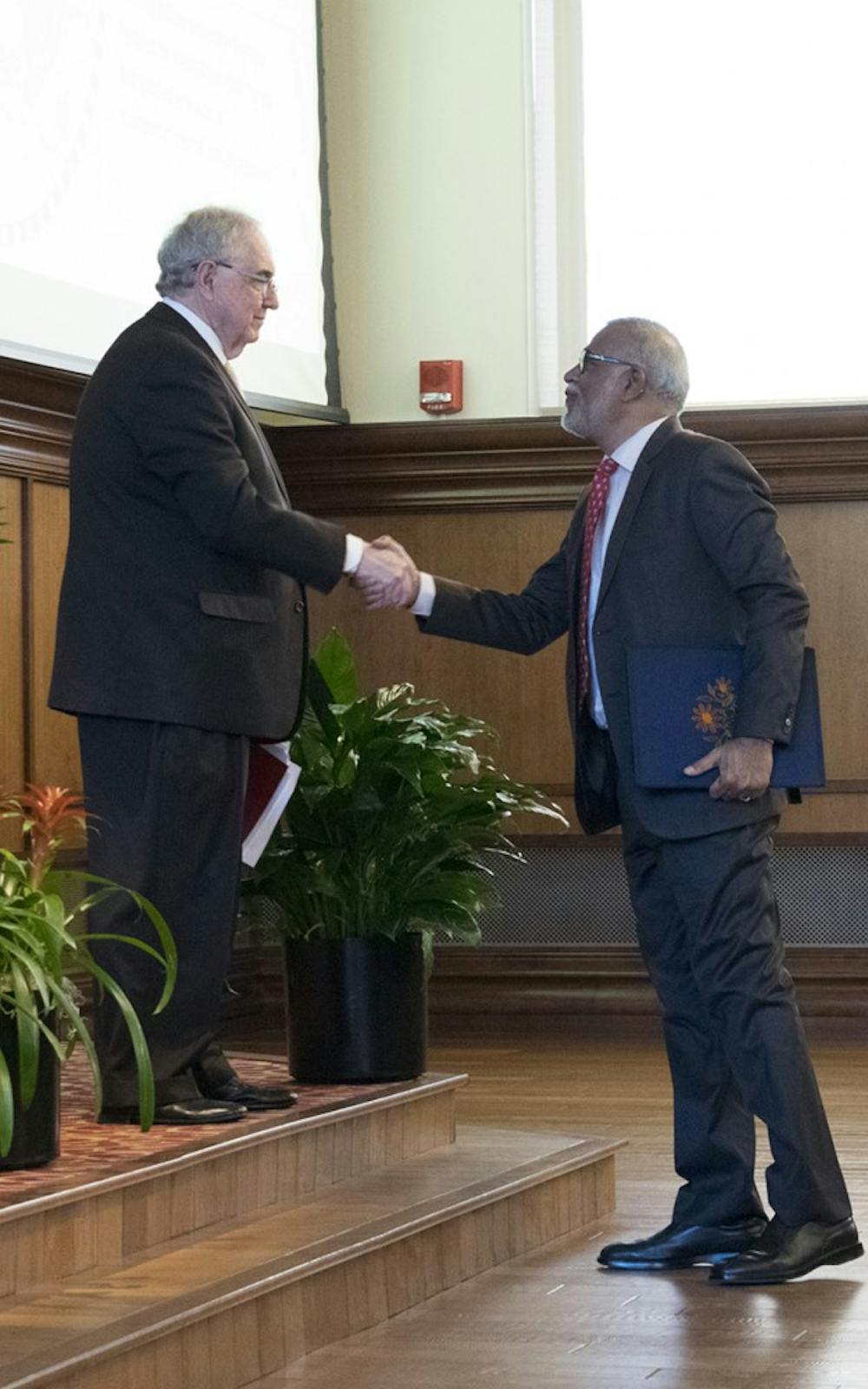Dr. Narendra Jadhav, an IU alumnus and member of the Parliament of India, said Monday evening that racism in the 19th and 20th centuries was linked in ideals, and the modern economies of both India and the United States could continue to grow by educating previously disenfranchised populations.
He spoke as part of the O’Meara lecture series and was introduced by Patrick O’Meara, former vice president for international affairs. O’Meara praised Jadhav’s work and spoke about his early days at IU.
“Your journey was to Bloomington, and I was touched because as you embarked on that journey your father wept,” O’Meara said. “But he didn’t weep out of sorrow, he wept because he had gotten everything he wanted, and he said he was ready to die.”
Jadhav has written extensively on economic theory and his family’s struggle with being untouchables, or the lowest in the Indian caste system.
Jadhav said despite differences in history, the one thing that linked the development of both India and the U.S. was the oppression of parts of their societies: slavery and the caste system, which discriminated against untouchables and aboriginal people.
“What the two democracies do have in common is a long history of stigmatization, discrimination and disenfranchisement against a large segment of their own people,” Jadhav said.
While American slavery was a social construct, the caste system was religiously motivated, which prompted large groups of people from the lower castes to break away from Hinduism and convert to Buddhism, Jadhav said.
“The caste is the defining factor in determining the course of one’s life,” Jadhav said. “Whether one becomes a scholar or whether one becomes a scavenger depends on his or her caste. How could mere mortals challenge the structure of the god himself?”
He also said systemic discrimination and a lack of education made a difference in the economic growth of major countries and to improve the economy, better race relations are necessary.
“The most important factor holding down the future growth of the United States is rising inequality,” Jadhav said.
India’s growth, though currently high and on the rise, was also hampered by its legacy of racism, and India could not grow further if only a small percent of its citizens were allowed access to education instead of being forced into a trade, he said.
“The nation had lost. The caste system has done irreparable damage to us,” Jadhav said.
Since populations of color have been on a steady rise in the U.S., he said there was an opportunity to even out past inequality.
“The shifting of racial demographics give the United States the opportunity to live up to the ideals on which it was founded,” he said.
Integrated and educated labor forces could spur even greater growth for both countries, and Jadhav said it was the only way the two economies could make right their histories of oppression.
“Inclusive growth, going beyond the caste divide in India and the racial divide in the United States, seems to be the panacea for the growth of both these great countries,” he said.




